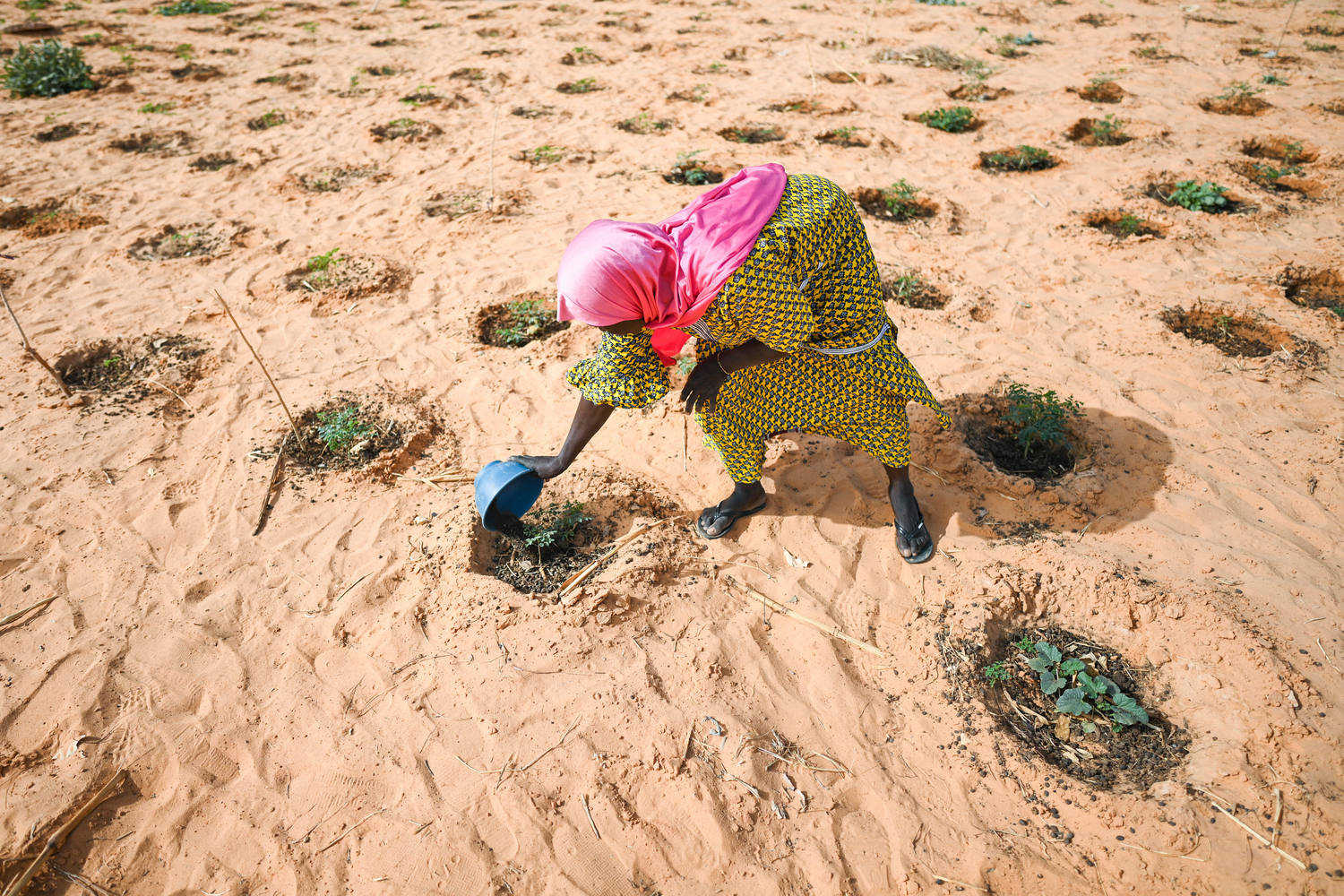UNHCR helps ease life for displaced Colombians in swampy shanty settlement
UNHCR helps ease life for displaced Colombians in swampy shanty settlement

TUMACO, Colombia, March 8 (UNHCR) - When the tide comes in, the Puerta del Sol neighbourhood of the Pacific port of Tumaco becomes a big black lake of mud and waste. Yet, this swampy tropical slum in south-west Colombia is home to almost 800 people - Afro-Colombians forced to flee their homes elsewhere in volatile Narino department.
They live in a dire settlement of back-to-back wooden shacks on stilts, interlaced by wooden walkways and rough lanes covered in sawdust in a vain attempt to offer protection against the sucking mud.
These people, mainly women and children, dream of their old rural lifestyles, before violence came and uprooted their lives. They are proud people and they try to live with as much dignity as possible. One hut is used as a primary school, while regular community meetings are held in another flimsy building.
But they need help. Many people suffer from respiratory problems and skin infections, while intestinal parasites are a common problem for children. Some people find part-time employment, but they rely a lot on the government, the UN refugee agency and other humanitarian aid groups, which provide assistance to make their daily lives more comfortable and healthy.
For example, their Puerta del Sol, or Gate of the Sun, neighbourhood has no fresh water distribution network. To counter this problem, UNHCR has funded the installation of tanks to catch rainwater. These provide the recommended daily minimum of 15-20 litres of water per person during the May-December rainy season. But during the dry season, they have to use wells.
And to help improve health and sanitation conditions, UNHCR is providing the members of this growing community of displaced Colombians with the means to strengthen and improve their rough shelters and to build one latrine for every eight families, or about 20 latrines in total.
"With the help of a technical expert from UNHCR and my neighbours, I have fixed my house and the roof no longer leaks when it rains," said 43-year-old Roberto.* "My [four] children are less likely to fall sick," he added.
These interventions are part of a joint plan of action, developed by the government, UNHCR and local aid groups in consultation with the population of internally displaced people and aimed at providing an effective response to the needs of the inhabitants of Puerta del Sol, which may be sunny in name, but not in nature.
This plan of action will also help others likely to arrive in the sprawling port after being displaced by continuing conflict in Narino, particularly Afro-Colombians living along the border with Ecuador or in coastal settlements. The violence has also disrupted the lives of thousands of indigenous people in the department, which has the highest rate of forced displacement in the country.
According to government figures, there are more than 140,000 internally displaced people in Narino, including about 7,500 forced to flee their homes last year. About 200 a month come to Tumaco and register with the local authorities and the figure is growing, according to the government institution, Accion Social. Many of them find shelter in Puerta del Sol, swelling the population there and putting added pressure on the stretched services.
But despite their grim situation, the people of Puerta del Sol are happy to be safe - many lost relatives, others were raped - and to receive assistance. Many of them remain optimistic, even though they live in a city with many social problems.
* Name changed for protection reasons
By Francesca Fontanini in Tumaco, Colombia








